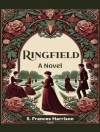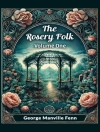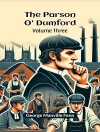J. M. Synge’s ‘The Playboy of the Western World’ is a masterful embodiment of the Irish literary revival, presenting a vivid tableau of rural life in Ireland during the early 20th century. The play is characterized by its rich, lyrical dialogue and a unique blend of realism and myth, exploring themes of identity, heroism, and societal norms. Set in a remote village, the narrative revolves around the enigmatic character of Christy Mahon, who claims to have killed his father, igniting a complex interplay of admiration and scandal that reveals the village’s hidden desires and moral contradictions. Synge’s use of colloquial speech coupled with poetic undertones creates an immersive drama filled with humor and pathos, situating it within the broader context of the literary revival movement that sought to forge a distinct Irish voice. J. M. Synge was influenced by his exposure to the Irish countryside and peasant life, spending time with local communities, which deeply inspired his writing. His experiences, coupled with the burgeoning nationalism of his time, prompted him to explore the duality of rural tradition and modern aspiration. Synge’s unique perspective on the complexities of human nature and the interplay of reality and myth is evident in this seminal work, marking him as a pivotal figure in Irish theater. ‘The Playboy of the Western World’ is a must-read for anyone interested in the intricacies of human motivation within societal constraints. It remains influential for its authentic portrayal of Irish culture and serves as a catalyst for discussions about identity and freedom. Readers looking to explore the poignant and often humorous conflicts between traditional values and personal ambition will find Synge’s work both engaging and enlightening.
Tentang Penulis
John Millington Synge, an Irish playwright, prose writer, and poet, was born on April 16, 1871, and is esteemed as one of the most influential figures in the Irish Literary Revival. Synge’s literary journey, intricately tied to the rich cultural tapestry of Ireland, was nurtured by his study of the Irish language and folklore, particularly from the Aran Islands. His masterful work, ‘The Playboy of the Western World’ (1907), earned both fame and notoriety, stirring controversy and prompting discussions about Irish identity and morality. Synge’s dramatic compositions are characterized by their combination of lyrical prose, keen observation, and sardonic wit. Employing both the Hiberno-English dialect and rhythmic elements of the Irish language, his works poignantly captured the struggles and idiosyncrasies of rural Irish life at the turn of the 20th century. Synge’s contributions to literature were curtailed by his untimely death on March 24, 1909, but his legacy endures in his celebrated plays and his influential role within the Abbey Theatre alongside Yeats and Lady Gregory. Synge’s writings continue to be a subject of academic study and have left an indelible mark on the theater and on Irish cultural identity.












